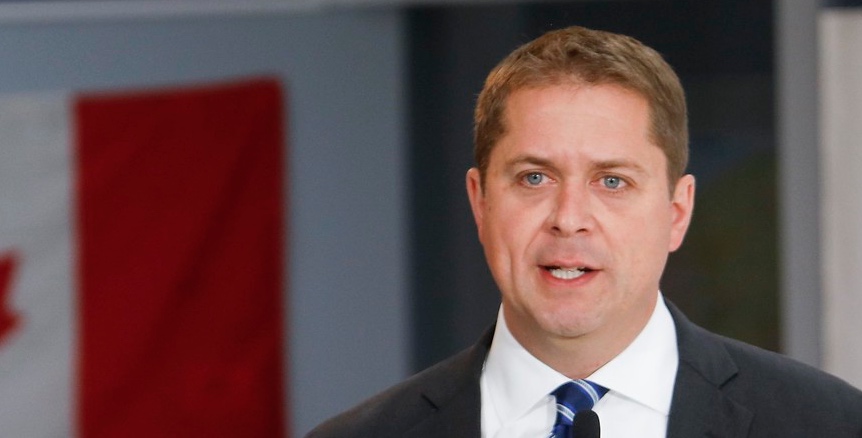If the Conservatives led by Andrew Scheer should win the most seats in the House of Commons tonight but Liberal Prime Minister Justin Trudeau refuses to hand over power on the perfectly reasonable parliamentary grounds he thinks he can command the confidence of the House, much of Alberta will go over the edge.
The almighty howl of fury Canadians would surely hear in such circumstances is what we get, I suppose, for not requiring students to attend high school civics classes to learn how our system of parliamentary government works.
It was deeply cynical and possibly quite dangerous for Scheer — who, as a former Speaker of the House certainly knows better — to claim that some kind of brand new parliamentary convention requires the party that wins the most seats in a multi-party Parliament automatically to form the government.
Not only is there no such convention — that is, one of the unwritten rules our parliamentary system inherited from the United Kingdom — there is one that says the opposite.
To wit: If the prime minister thinks after an election he can command the confidence of the House, the real parliamentary convention says he gets to try.
Such a first minister’s effort may fail on an early vote of confidence, of course, as former Liberal New Brunswick premier Brian Gallant’s did last year. But it was only after that happened that Progressive Conservative Leader Blaine Higgs got to lead the government.
Higgs remains the premier, so I suppose New Brunswick Conservatives must feel the system works as intended.
But as Scheer well knows, that’s not the way things are likely to play out in Ottawa this time if a pizza Parliament with party representation thinly sliced is what we get tonight. This, presumably, is why the former insurance broker, or whatever he used to be, pulled this nonsense about a new parliamentary convention from his obviously fertile imagination and keeps repeating it as if repetition will make it true.
Nevertheless, you can also count on it that in such circumstances plenty of die-hard Conservatives here in Alberta would take Scheer at his word, or at least repeat his talking point, and say and do God knows what as a result.
Of course, if the shoe is on the other foot, and Scheer manages to cobble together a deal with the separatist Bloc Québécois to form a government, all you’ll hear out here is the crickets. Or, actually, not even them, seeing as it’s getting too cold at night now for chirping.
But that’s just the way we roll out here in Wild Rose Country.
If you doubt me, recall that once upon a time, in a Canada not so different from the one we may be living in tonight, the Liberals and the NDP signed an agreement to form a coalition government, with a side deal with the Bloc Québécois not to pull the whole thing apart at the first opportunity.
The outrage in Conservative circles in Alberta reached near hysteria. But that was then and a Conservative government was threatened, not threatening.
The year was 2008, and I suspect those Conservatives knew that if the deal had come to fruition, Liberal Party leader Stéphane Dion might still be prime minister of Canada today.
As for Dion and Jack Layton, the NDP leader at the time, agreeing to sign a side deal with the Bloc, that was frequently described around here as treason.
Well, thanks to then prime minister Stephen Harper’s unconstitutional but never challenged agreement with governor general Michaëlle Jean to prorogue Parliament in defiance of convention, the Canadian people’s assembly was prevented from fulfilling its democratic role, to the great relief of Alberta’s Conservatives.
What happened since is well known and brings us to where we are today.
Indeed, if we face such circumstances tonight and we create a Venn diagram of Alberta Conservatives who viewed working with the Bloc in 2008 as outright treason and cutting a deal with them 11 years later a perfectly reasonable Parliamentary tactic, we will only need to draw one circle.
Only one prediction can be made with confidence about today’s election: Whatever happens, Alberta is unlikely to be happy about it.
David Climenhaga, author of the Alberta Diary blog, is a journalist, author, journalism teacher, poet and trade union communicator who has worked in senior writing and editing positions with The Globe and Mail and the Calgary Herald. This post also appears on David Climenhaga’s blog, AlbertaPolitics.ca.
Image: Andrew Scheer/Flickr
Editor’s note, October 21, 2019: An earlier version of this story incorrectly referred to the 2008 Canadian federal election as the 2018 election.



